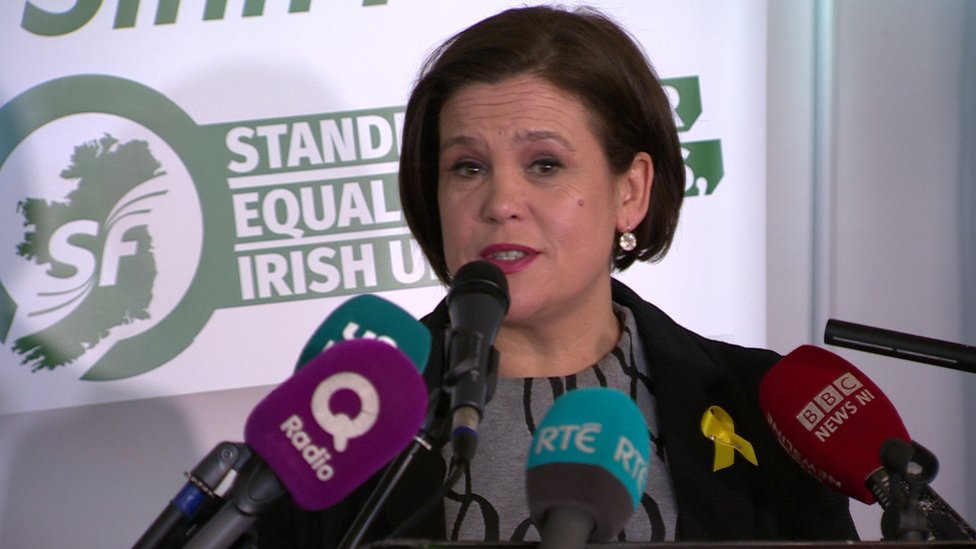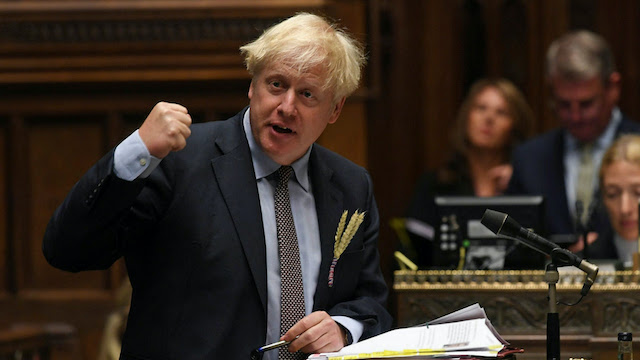By Deaglán de Bréadún
Combining the words ‘British’ and ‘exit’, the United Kingdom process of withdrawal from the European Union known as Brexit began with a referendum in June 2016 when 52% of UK voters opted to leave the EU. The marriage which took place on New Year’s Day back in 1973 was meant to be finally over by March 2019 but it dragged on until January 31 this year. Under the terms of a withdrawal agreement, a transition period is set to last until December 31 and, until then, the UK remains in the European single market. This is partly to allow for negotiations on a long-term trading relationship. If agreement cannot be reached, what is known as “a no-deal Brexit” is due to take effect from January 1, 2021.
The existing withdrawal agreement includes a Northern Ireland protocol whereby the six northern counties on the island that are part of the UK would effectively remain within the European single market, applying EU customs rules and product standards. The 310-mile border between the two parts of Ireland is the only land border between the UK and the EU.
During the debate over Brexit, a great deal of concern was expressed that a “hard border” with customs posts at crossing-points between north and south would jeopardise the peace process, partly because these structures could become targets for violent attack by dissident republican groups opposed to the Good Friday Agreement.

Since the rest of the UK would no longer apply EU regulations after December 31, certain goods coming into Northern Ireland, over the Irish Sea from England, Scotland and Wales, would be subject to checks. If these goods were intended to be transported across the border to the Republic, then EU taxes or tariffs would be imposed. In addition, animal and food products would have to comply with EU standards. Instead of a “hard border” on land, there would be a regulatory and customs border in the Irish Sea. If the goods stayed in Northern Ireland, then any tariffs imposed would be refunded. Inevitably, some unionist politicians had concerns about the protocol which they felt was weakening the link between Northern Ireland and the rest of the UK.
The withdrawal agreement states that, as an international treaty, its terms take precedence over domestic legislation. But the UK has recently brought forward the Internal Market Bill which would, for example, allow British government ministers to set aside certain provisions in the Northern Ireland protocol. The Secretary of State for Northern Ireland, Brandon Lewis confirmed that the legislation would break international law in “a very specific and limited way”.
The prospect of legislation that would deliberately breach international law has caused shock even in some conservative quarters in Britain. Former prime minister Theresa May told the House of Commons that, if the Bill was passed into law, “our reputation as a country that sticks by its word will have been tarnished.” She added that it would do “untold damage to the United Kingdom’s reputation.”
Four other predecessors of current Prime Minister Boris Johnson – Sir John Major, Tony Blair, Gordon Brown and David Cameron – have also criticised the proposed legislation. However, Minister of State for Northern Ireland Robin Walker said the Bill was intended to fulfill an election promise to “provide unfettered access between Northern Ireland and Great Britain.”
A trade deal between the EU and UK is seen as particularly important for Ireland and failure to reach such an agreement would be very disruptive for the food sector. Chief EU negotiator Michel Barnier has highlighted the need for progress on issues such as fisheries and state aid policies
Commenting on the negotiations for a long-term EU-UK arrangement, Ireland’s Minister for Foreign Affairs Simon Coveney told Dáil Éireann: “Even if we get an agreement on a future relationship, I do not believe it will be ratified if there is still a threat by the UK to legislate to undermine the withdrawal agreement and break international law. Why would the EU ratify a new agreement with a country that is threatening to break an agreement that is not even 12 months old?”
Sinn Féin President Mary Lou McDonald said: “Throughout the sorry saga of Brexit, Sinn Féin have been very clear that Ireland cannot become collateral damage to the posturing of the British government in this Tory Brexit.

(Photo: BBC).
“The all-Ireland economy, the peace process and the Good Friday Agreement must be protected. There can be absolutely no hardening of the border. The Withdrawal Agreement and the Irish Protocol cannot be abandoned and must be honored.”
Meanwhile in the U.S., the potential for damage to the Good Friday Agreement has also been highlighted by Democratic presidential candidate Joe Biden who tweeted that, “Any trade deal between the US and UK must be contingent upon respect for the Agreement and preventing the return of a hard border. Period.”
However UK Foreign Secretary Dominic Raab said during a visit to Washington that the threat to the Good Friday Agreement was coming from the EU side: “What we cannot have is the EU seeking to erect a regulatory border down the Irish Sea between Northern Ireland and Britain.”
After a meeting with Mr Raab on Capitol Hill, Speaker of the House Nancy Pelosi and Chairman of the House Ways and Means Committee Congressman Richard Neal both of whom visited Northern Ireland in 2019, stressed that there could be no bilateral trade agreement between the US and the UK if the Good Friday Agreement was under threat.

(Photo: Charles McQuillan / Getty Images).
“If the UK violates its international agreements and Brexit undermines the Good Friday accord, there will be absolutely no chance of a US-UK trade agreement passing the Congress,” Speaker Pelosi said in a statement.

Deaglán de Bréadún is a freelance journalist and author based in Dublin. He is a columnist with The Irish News and his books include ‘The Far Side of Revenge: Making Peace in Northern Ireland’ and ‘Power Play: The Rise of Modern Sinn Féin’ as well as three books in Irish. His reporting on the Good Friday Agreement negotiations and their aftermath for The Irish Times won the Northern Ireland IPR/BT award for Daily News Journalist of the Year.


Leave a Reply